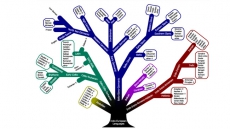CALGARY — We've all got one — a story from our teenage years about a risky decision that we look back on with a mixture of pride and dread at the thought of what could have happened had something gone wrong.
The deaths of 17-year-old twin brothers who police say scaled a fence with six other friends to toboggan down an icy bobsled track in Calgary has raised the question of why do young people take such risks?
The answer, says Toronto-based family therapist and author Alyson Schafer, lies in part of the teenage brain.
A number of studies, including one from the National Institutes of Health in the United States and another from the American College of Pediatricians, point to teenage brains still being under construction.
The early adolescent brain has higher levels of dopamine — the hormone most responsible for feelings of pleasure — in the prefrontal cortex, but decreasing dopamine levels in the reward centre of the brain.
The low levels of dopamine in the reward centre suggest a teen requires more excitement and stimulation to achieve pleasure than an adult.
So a teenager will attempt riskier behaviours, Schafer says.
"What we have seen is the teen brain is actually wired evolutionarily to take risk and to excitement seek. It's sort of a Darwinian thing that says this is the age as a species you are asking the approaching adult to leave the security of the family social unit and to venture out — basically flock from the nest," she says.

"I'm sure every parent can probably dig back in their memory and think of something where they go: 'There but for the grace of God go I, if I would have gone two miles an hour faster or didn't stop three seconds earlier," she said.
"We've all done boneheaded things and survived. This is just one of those cases where it didn't work out."
Schafer says teens are good at recognizing risks in their actions, but often take part anyway. Add in peer pressure and there's a problem.
"I bet those eight teens made a different decision than if one teen went up their alone."
Schafer advises parents to try to find activities for their kids that involve the feeling of risk without the danger, such as sports or public performance.
The superintendent of Westmount Charter School where twins Jordan and Evan Caldwell attended, says he hopes that students will learn from this sad event.
"It's important for us to remember that the students involved in this event are teenagers. They make some decisions about the kind of activities they want to get involved in. Sometimes it will be a bad decision which can lead to a tragic ending," says Joe Frank.
"I think we need to have our students as much as possible think it can happen to anybody — it can happen to them."





